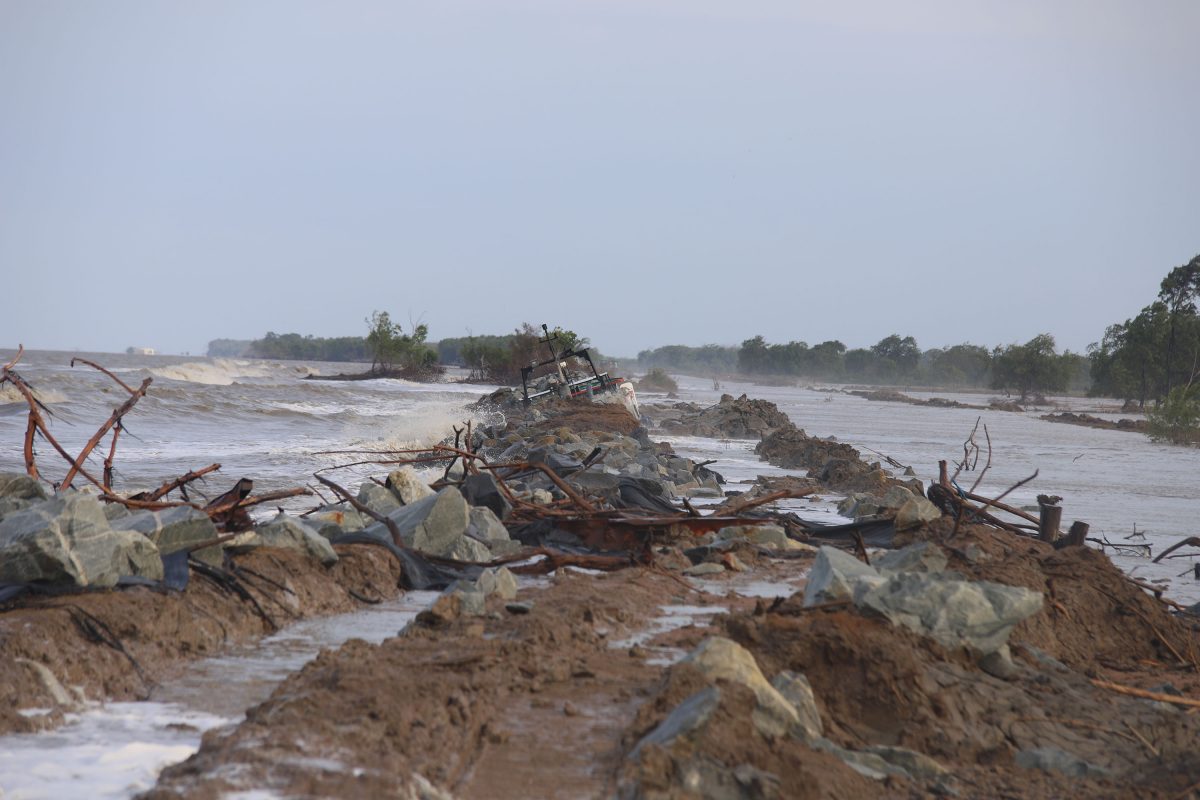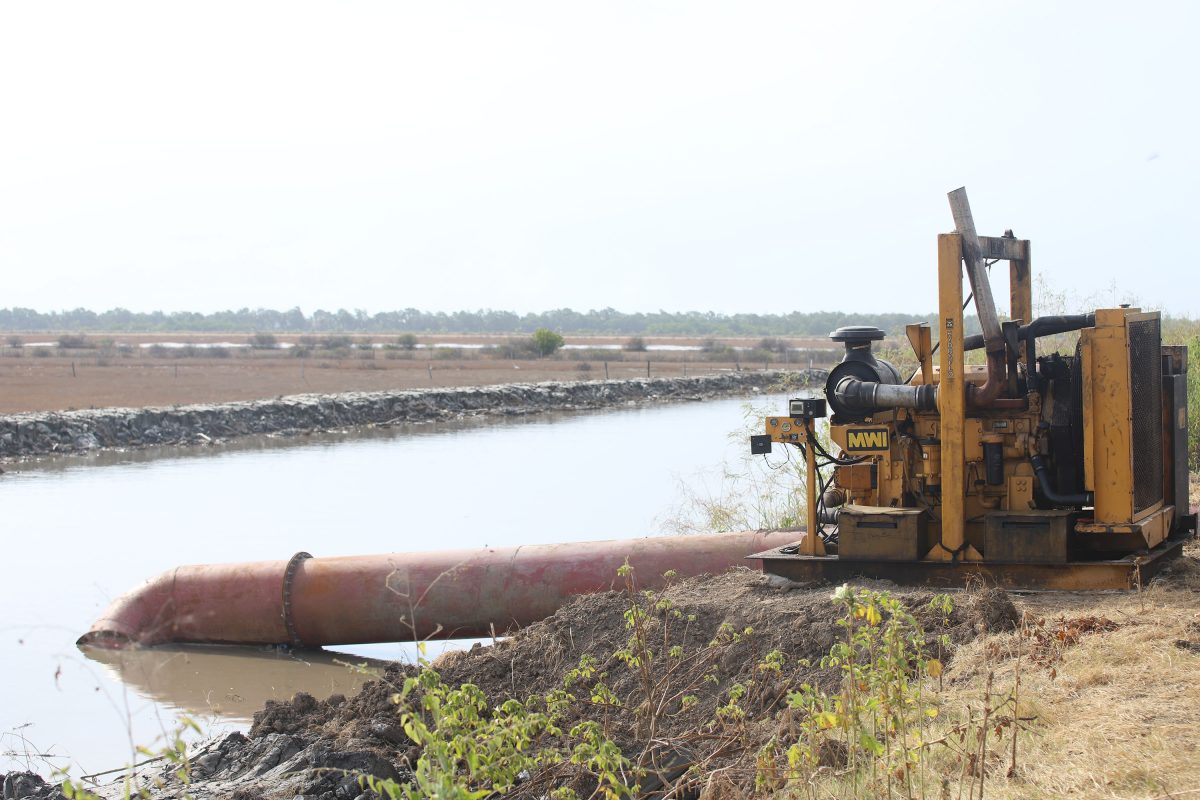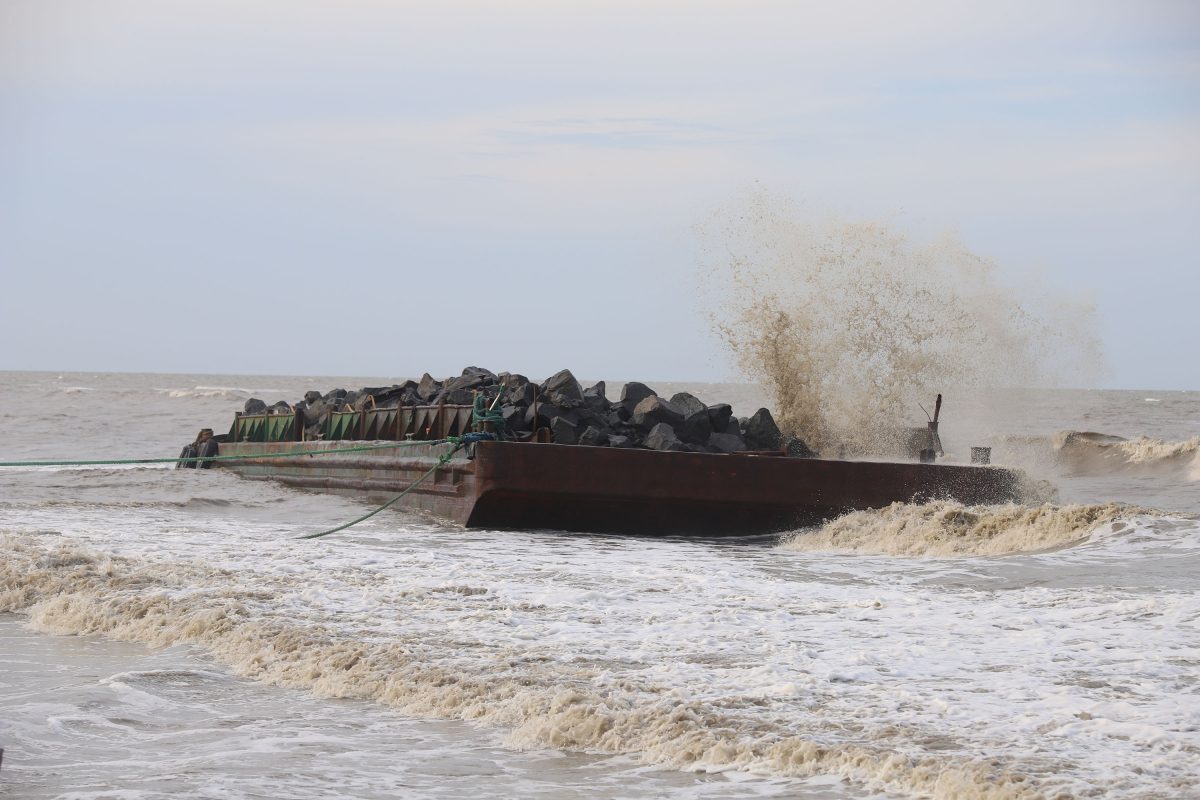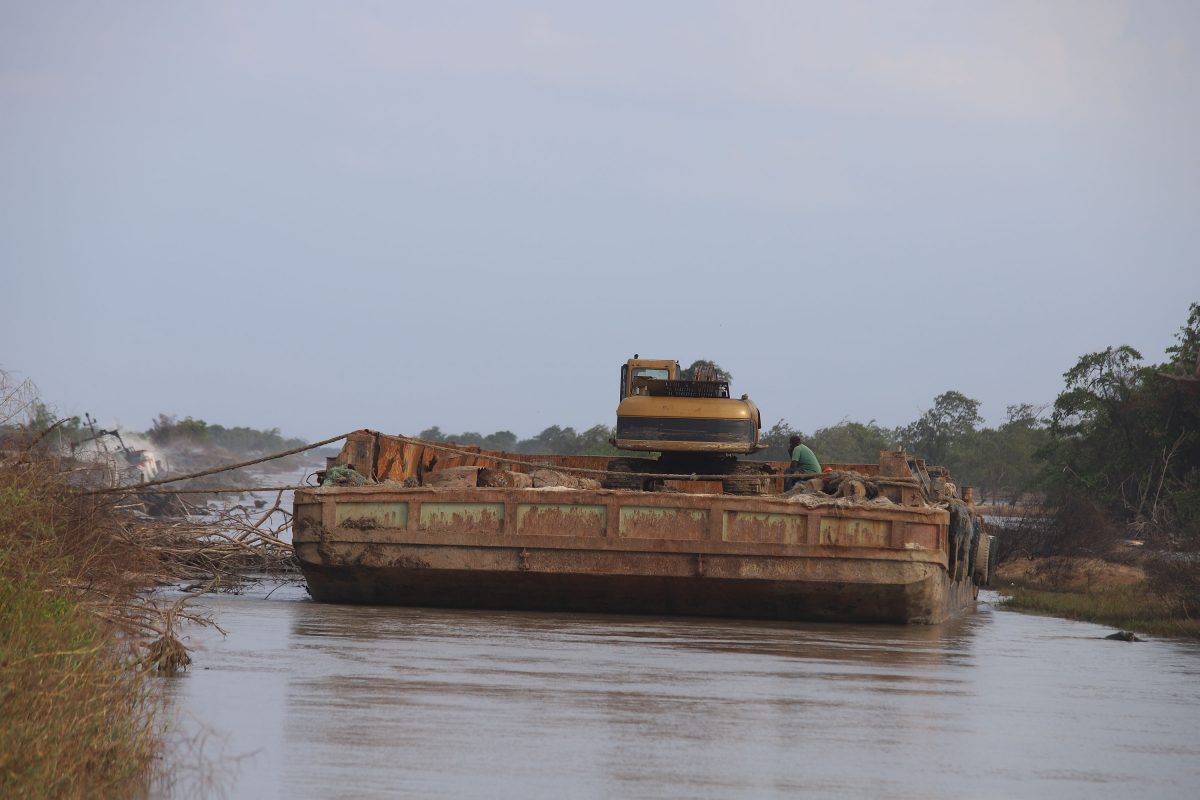Boulders to seal a decrepit section of the Mahaicony sea defence have begun to arrive by sea but raging waves are preventing the offloading of pontoons and transport by road may have to be considered as the authorities brace for more towering spring tides from October 26.
Barges of some of the 50,000 tonnes of required boulders were delivered to the site between Tuesday and yesterday. However, with the active erosion at the site and powerful waves, it has been a challenge for contractors to begin works, Kevin Samad, Chief Sea and River Defence Officer said.
“We are still trying to seal the breach. Two pontoons with rocks were sent to the area and more are expected to follow for the next couple of weeks,” he told Stabroek News yesterday in a telephone interview.
Spring tides earlier this month crashed through areas where mangroves had eroded, flooding rice fields with salt water.
Stabroek News understands that the contractors have not been able to offload the boulders from the pontoons to start sealing the breach in the Columbia/ Glaziers Lust area due to the ferocious waves.
“The area is an active erosion zone and there are turbulent waves. So getting the rocks offloaded is kind of challenging but we are doing our best at this time and we are going to get works done,” Samad added.
In a bid to address the problem, Samad said they are currently upgrading the access road so that boulders can be trucked from George-town to the site.
Presently, Samad said he and his team are in talks with a few more contractors to step in and provide services as they look to seal the breaches along the Mahai-cony coast swiftly. He explained that the ministry is aware of the threat the porous defence poses and they are working to have it fixed.
Stabroek News learnt that some pontoons have faced difficulties staying afloat due to the rough waters during the high tides.
When asked about the situation at Fairfield, Mahaicony, Samad ex-plained that there was no breach at that area but it has been experiencing some overtopping. Approximately 25,000 boulders were used to seal the breach in that area and works will soon commence to stop the overtopping.
Farmlands
Additionally, Samad disclosed that three pumps have been strategically placed along the coast to assist with taking off water from lands in the affected communities. During a visit to the area yesterday, Stabroek News observed that several swathes of land remain inundated. A fourth irrigation pump, he noted, is expected to come into play soon to aid in draining the Bellamy Canal into the Atlantic Ocean and further bring relief to farmers.
He added that the National Drainage and Irrigation Authority has been assisting in rebuilding dams between the sea breach and farmlands.
Several rice farmers have opted to start reaping their paddy in a bid to salvage what they can. Farmers said they would have wait on rains to wash the lands before they can return to cultivating and many have ruled out planting for the next crop.
“The salt water has contaminated the farms so the farmers will not be able to use these lands for another two years or so”, Chairman of Region Five Vickchand Ramphal said.
Government announced last week that some 50,000 tonnes of boulders will be needed to fix the breach on the coast. Minister of Pub-lic Infrastructure, David Patterson had said that they will be undertaking emergency works before the next spring tide on October 26. Emergency works will take place along the impacted areas between Dantzig and Fairfield, Mahaicony.
Spring tides at the start of this month surged through one section of the fragile defences where natural protection mangroves had been washed away and salt water ruined large swathes of rice acreage.
One farmer, Neil Machado, who has farmlands at Dantzig, Mahai-cony, said last week that in total, the flooding caused him to lose just over 600 bags of paddy which were expected to be reaped sometime this month. “Nobody wanna bring their machine into the saltwater before it damage up the combine and so,” Machado said. At the time of Stabroek News’ visit, a pump was in operation, pumping water from sections of the land into a nearby canal.
The farmer added that following the overtopping, not much attention is being given to the small farmers whose lives and livelihoods will now be affected in the long term.










